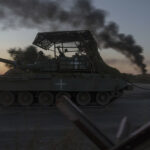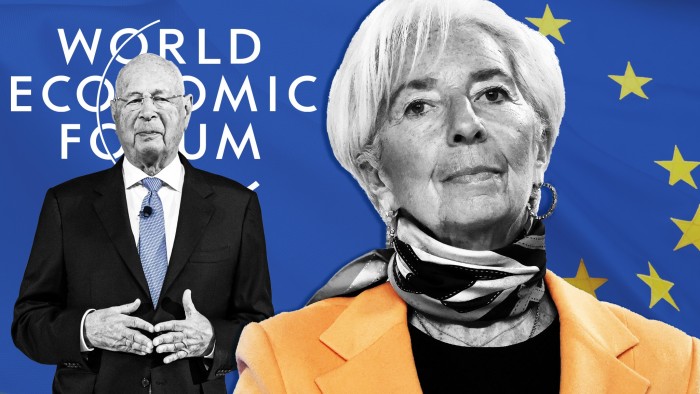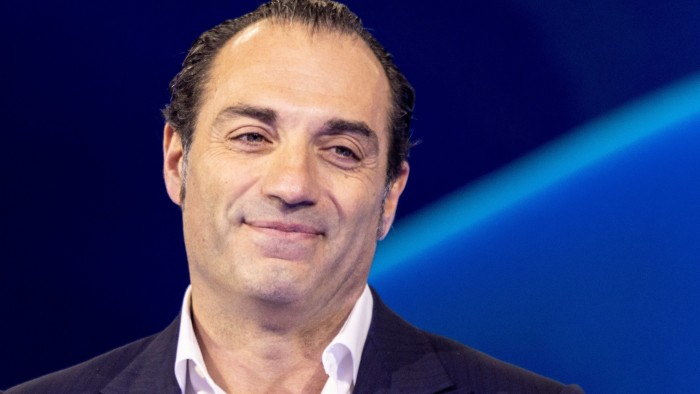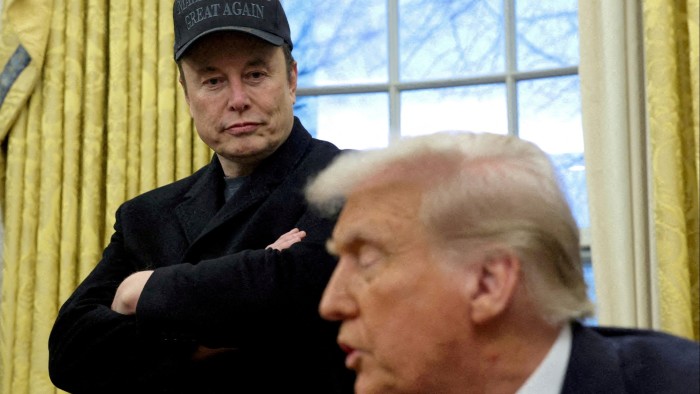Israel widens air strikes against neighbours in escalating campaign
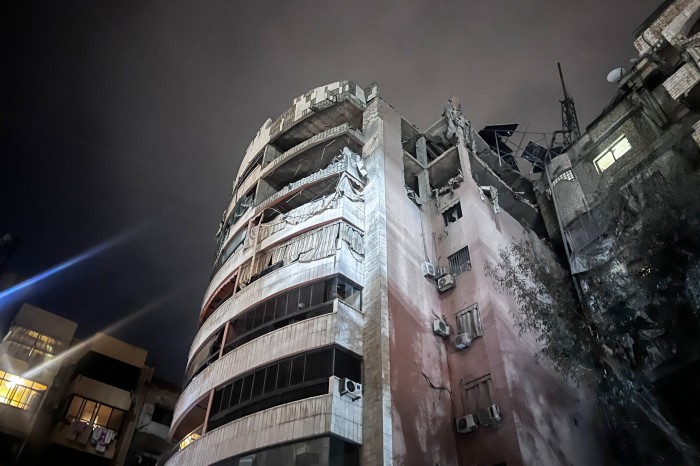
Israel has stepped up air strikes on Lebanon and Syria alongside its renewed military offensive in Gaza, widening attacks and pushing up tensions across the region.
Israeli strikes in southern Lebanon killed one person on Monday and two on Sunday, according to Lebanon’s Ministry of Health. Israel said it was targeting Hizbollah members.
It came after Israeli air strikes in Syria last week killed nine people, according to Syrian state media, in the deadliest attack since the fall of Bashar al-Assad’s regime in December. Israel has also killed nearly 1,400 people in Gaza since it broke a ceasefire with Hamas and restarted its campaign in the strip last month, according to Palestinian officials.
The intensifying multifront campaigns are part of a more aggressive approach by the government of Israeli Prime Minister Benjamin Netanyahu, who has received the staunch backing of US President Donald Trump. Netanyahu is set to meet Trump in Washington on Monday.
In Lebanon, Israel has conducted regular strikes since a ceasefire on November 27 ended more than a year of war with Hizbollah, saying it is acting to enforce the deal.
This has included recently striking the southern suburbs of Beirut for the first time since the ceasefire. The first attack came after Israel threatened to retaliate for projectiles fired from southern Lebanon across the border.
A second strike on the capital last week, which Israel said targeted a Hizbollah member who had worked with Hamas, killed four people — including one woman — and injured seven, according to Lebanon’s health ministry. Lebanon’s government condemned the strike, calling it a ceasefire violation.
“There’s been a notable escalation in recent weeks, but the groundwork for the kind of escalations that we’ve seen was laid from the very start,” said David Wood, senior Lebanon analyst at Crisis Group.
“Israel made a concerted effort to normalise the idea that it would continue to strike targets inside Lebanon as long as it wasn’t satisfied that the Lebanese army was implementing the ceasefire agreement.”
Under the terms of the US-brokered deal to end the 13-month war, Hizbollah agreed to move its weapons out of southern Lebanon while Israeli troops were to withdraw and be replaced by the Lebanese army. The conflict began after Hizbollah started firing rockets towards Israel following Hamas’s October 7, 2023 attack.
Israeli troops, however, remain in five “strategic” positions inside southern Lebanon, claiming it was part of the deal.
Morgan Ortagus, the US’s deputy Middle East special envoy, reiterated support for Israel while in Beirut last weekend.
Asked during an interview with Lebanese broadcaster LBCI whether Israel would continue to strike Hizbollah, Ortagus said: “It’s clear that Hizbollah has to be disarmed. It’s clear that Israel is not going to accept terrorists shooting at them into their country, and that’s a position we understand.”
Israel has also stepped up its air strikes in Syria, last week bombing targets including air bases in what defence minister Israel Katz portrayed as a warning to the government of interim president Ahmed al-Sharaa.
“If you allow forces hostile to Israel to enter Syria and endanger Israeli security interests, you will pay a very heavy price,” Katz said.
In the days following Assad’s fall last year, Israel unleashed a bombing campaign across Syria, which it said aimed to destroy the former regime’s military facilities and infrastructure.
Israeli forces have also occupied a swath of southwestern Syria, seeking to bring a previously UN-monitored demilitarised buffer zone under its military control.
In Gaza, an Israeli strike on Monday hit a tent used by journalists near Nasser Hospital. Ten people were killed and dozens of others wounded, according to the Palestinian Ministry of Foreign Affairs in Ramallah.
Israel has also imposed a total siege, with no food or supplies entering since March 2, and issued a series of evacuation orders that have displaced hundreds of thousands of people from their homes.
“More than 2.1mn people are trapped, bombed and starved again, while, at crossing points, food, medicine, fuel and shelter supplies are piling up, and vital equipment is stuck,” the heads of six UN agencies including OCHA, WFP and WHO said on Monday.
The renewed offensive has pushed the total death toll in Gaza above 50,000 people, according to Palestinian officials.
Israel began its campaign following Hamas’s October 7 attack, in which militants killed 1,200 people, according to Israeli officials, and took 250 hostage.


